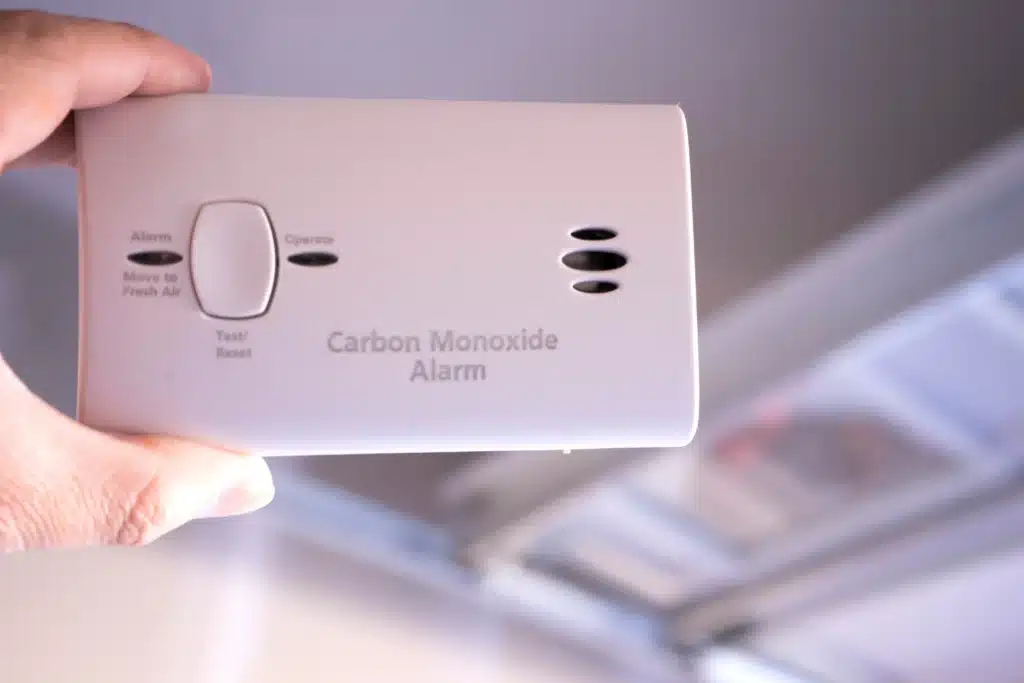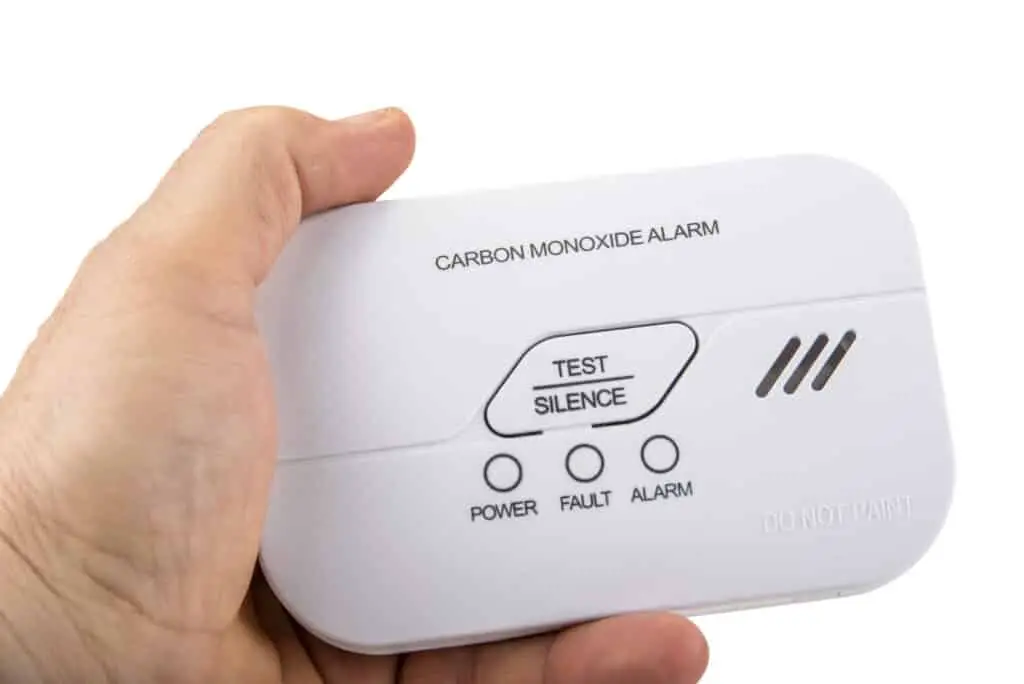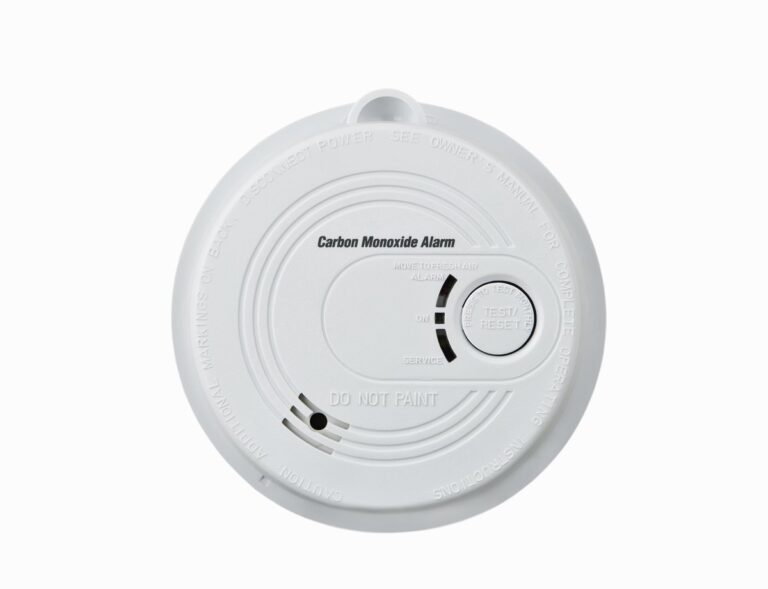Introduction
Will Propane Set Off A Carbon Monoxide Detector: Heaters, stoves, and grills require propane. It is popular for household and commercial use because to its efficiency and versatility. However, there is a common misconception that propane can set off a carbon monoxide detector. In this article, we will explore whether or not this is true and provide a comprehensive understanding of the relationship between propane and carbon monoxide detectors.
Firstly, it is important to understand the purpose and function of a carbon monoxide detector. Carbon monoxide is a colorless, odorless, and tasteless gas that can be extremely dangerous if inhaled in high concentrations. Carbon monoxide detectors are crucial in alerting individuals to the presence of this toxic gas, allowing them to take immediate action to prevent harm.
Contrary to popular belief, propane itself does not produce carbon monoxide gas when burned. Propane is a clean-burning fuel that produces significantly fewer emissions compared to other fossil fuels. This is because incomplete combustion of propane can occur, leading to the production of carbon monoxide gas. Therefore, it is not the propane itself that triggers a carbon monoxide detector, but rather the byproduct of its combustion in a faulty or poorly ventilated system.
This means that a carbon monoxide detector will not go off solely due to the presence of propane in the air. However, if there is a malfunctioning propane appliance or inadequate ventilation, resulting in the production of carbon monoxide, the detector will indeed sound an alarm.

Will carbon monoxide detector detect LPG leak?
It is very dangerous and can kill you if you breathe it in in large amounts. So, it is very important for your safety to have a carbon monoxide monitor in your home.
A carbon monoxide detector checks how much carbon monoxide is in the air and sets off an alarm if the amount goes above a certain level. There are sensors that are made to find carbon monoxide gas that help them do this. Other gases, like LPG, can’t be picked up by these devices.
It is important to move right away if you think your home has a gas leak. Let some fresh air in by opening the doors and windows and turning off any gas appliances. Then, leave the building. To check out and fix the leak, call your gas provider or a qualified expert. You might also want to add an extra layer of protection against gas leaks by putting in a separate LPG gas monitor in your home.
What type of detector is used for propane?
Because it can catch fire, it is important to have an effective detector in place to keep people and property safe.
Propane usually comes with flammable gas monitors. These devices pick up gases that can catch fire, like propane, in the air. They measure the amount of gas in the air and sound a warning if the levels rise above a certain level.
Propane gas monitors have very advanced sensors that can pick up on even very small amounts of the gas in the air. It will sound a warning to let people know that propane gas is present.
Along with combustible and propane gas monitors, multigas detectors can also find other gases. Multi-gas detectors can find more gases and provide a more full way to find things.
Whether it’s an explosive gas detector, a propane gas detector, or a multi-gas detector, it’s important to have a reliable detector when working with propane to keep people and property safe.
Do you need carbon monoxide detector for LPG gas?
Burning LPG, natural gas, oil, wood, and coal produces CO, a colorless, odorless, and tasteless gas. It is extremely dangerous as it can cause serious health problems and even death if inhaled in high concentrations.
.While LPG is a clean-burning fuel, it can still produce carbon monoxide if not burned properly or if there is a leak in the system. This is why it is crucial to have a carbon monoxide detector installed in your home.
It works by continuously monitoring the air for any signs of carbon monoxide and sounding an alarm if it detects high levels. This early warning system can give you and your family valuable time to evacuate the premises and seek fresh air before the gas reaches harmful levels.
It is essential to have a carbon monoxide detector for LPG gas in your home. This simple device can save lives by alerting you to the presence of this deadly gas and giving you the opportunity to take immediate action. Don’t compromise on safety when it comes to LPG gas – invest in a carbon monoxide detector today.
Will propane set off a fire alarm?
Propane is used for heating, cooking, and driving. However, many worry if propane can trigger a fire alarm. This relies on the fire alarm system and propane air concentration.
Fire alarms detect smoke, heat, and other fire signs. Propane is flammable yet does not smoke or heat until ignited. Thus, propane alone rarely triggers fire alarms.
Leaking propane can become very flammable and ignite if it reaches a high air concentration. In such instances, the fire or explosion may set off an alert. Propane can also produce carbon monoxide in a tight location without ventilation, setting off an alarm.
Additionally, some fire alarm systems are more sensitive and can be activated by non-smoke or heat. Multi-criteria fire alarms may detect more signs, including gasses. Thus, propane may trigger a fire alarm system of this type if it reaches a particular air concentration.
Propane is unlikely to set off a fire alarm, but handling it correctly prevents leaks and ensures sufficient ventilation. Consult a professional or fire alarm system maker if you have questions about propane compatibility.
Is propane the same as carbon monoxide?
No, propane is not the same as carbon monoxide. While both propane and carbon monoxide are gases, they have different chemical compositions and properties. Propane is a hydrocarbon gas, composed of carbon and hydrogen atoms, with the chemical formula C3H8.
Propane is commonly used as a fuel source for heating, cooking, and powering vehicles. It is a clean-burning fuel that produces carbon dioxide and water vapor when combusted. Carbon monoxide, on the other hand, is a colorless, odorless, and tasteless gas that is highly toxic.
Exposure to carbon monoxide can be extremely dangerous and even fatal. When inhaled, carbon monoxide binds to hemoglobin in the blood, reducing its ability to carry oxygen to the body’s tissues and organs. Symptoms of carbon monoxide poisoning include headache, dizziness, nausea, confusion, and loss of consciousness. Prolonged exposure to high levels of carbon monoxide can lead to permanent brain damage or death.
In summary, propane and carbon monoxide are two different gases with distinct chemical compositions and properties.
Propane and carbon monoxide detectors are both important safety devices that help protect against potential hazards in the home. While they serve different purposes, there is a potential relationship between the two. This is why it is crucial to have a carbon monoxide detector in your home if you use propane appliances. This can help prevent carbon monoxide poisoning, which can be life-threatening.
Can propane trigger the activation of a carbon monoxide detector?
Carbon monoxide detectors can light up with propane. Incomplete combustion of fuels like propane produces carbon monoxide gas, which carbon monoxide detectors detect. CO is released when propane is burnt. If airborne carbon monoxide levels reach a specific level, the detector will alarm.
Is there a risk of a carbon monoxide detector being falsely triggered by propane?
Propane is a hydrocarbon gas that is highly flammable and can be dangerous if not handled properly. However, if there is incomplete combustion of propane, it can produce small amounts of carbon monoxide. This is where the potential risk lies. If there is a malfunction or improper installation of a propane appliance, it can lead to incomplete combustion and the release of carbon monoxide gas.
How does propane interact with carbon monoxide detectors?
Carbon monoxide is a colorless and odorless gas that is highly toxic and can be deadly if inhaled in high concentrations. This means that if there is a propane leak or incomplete combustion of propane, carbon monoxide can be present in the air. They do this by continuously monitoring the air for carbon monoxide levels and sounding an alarm if they detect high concentrations.
Carbon monoxide detectors can detect propane gas, but they are not designed to. Specially calibrated propane gas detectors detect propane leakage. However, carbon monoxide detectors can still provide an added layer of safety by detecting the carbon monoxide produced by propane combustion.
Are carbon monoxide detectors sensitive enough to detect propane gas?
However, they can still provide some level of detection for propane gas in certain situations. Incomplete combustion produces propane gas, which can yield minor amounts of carbon monoxide when burned. Thus, a carbon monoxide detector may activate if propane gas levels are high.

Conclusion
Propane does not set off a carbon monoxide detector. Propane, on the other hand, is a clean-burning fuel that produces very low levels of carbon monoxide when burned properly.
It is important to note that while propane itself does not set off a carbon monoxide detector, it is still crucial to ensure proper ventilation when using propane appliances. This is because the combustion process can produce other byproducts, such as water vapor and nitrogen dioxide, which can be harmful if not properly ventilated.
In summary, propane does not set off a carbon monoxide detector. However, it is still important to prioritize safety when using propane appliances by ensuring proper ventilation, regular maintenance, and the installation of a carbon monoxide detector. By following these guidelines, you can enjoy the benefits of propane as a clean-burning fuel without compromising the safety of your home and loved ones.

